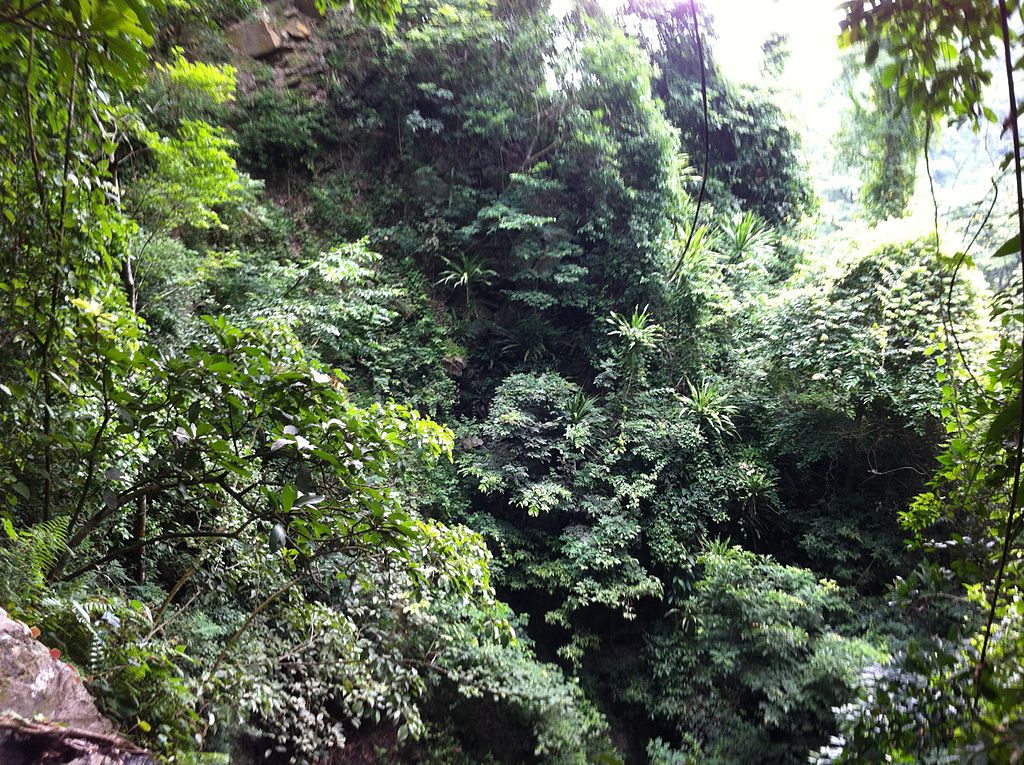
Albert Arhin has contributed a chapter to a new book on carbon forestry projects in Africa.
I call for carbon projects to not only consider past interventions, but also place issues of social justice, equity, livelihood benefits and sustainable development ideals at the heart and centre of their implementation.
Albert Arhin
A Gates Cambridge Scholar has contributed to a new book that examines the management of forests and carbon in Africa.
Albert Arhin has contributed a chapter to the book, Carbon Conflicts and Forest Landscapes in Africa, edited by Melissa Leach and Ian Scoones. The book examines what happens on the ground when carbon forestry projects – existing in various guises, often under the umbrella of the Reduced Emissions for Deforestation and Forest Degradation (REDD+) programme – arrive in national and local contexts.
Through a series of detailed case studies from seven countries, from east, west and southern Africa, the chapters ask what happens when carbon forestry projects unfold in particular places: who wins, and who loses out, and what the consequences are – for carbon sequestration and offsetting, as well as poverty reduction.
Albert [2012], who is doing a PhD in Geography, has written a chapter which provides an overview of the different types of forest carbon mechanisms in which African projects and programmes participate and shows how forestry carbon projects have become vital components of current thinking on global environmental governance and management of natural resources.
He argues that forest carbon projects are institutional frameworks within which national governments, the private sector, the NGO sector, philanthropists and researchers all hold different interests, roles and levels of participation and power. He says local communities have had only a marginal influence and position in the whole carbon policy web and that much of the discussion about projects is inaccessible to local people and not just marginalises but excludes communities from meaningfully engaging in the process.
‘I call for carbon projects to not only consider past interventions, but also place issues of social justice, equity, livelihood benefits and sustainable development ideals at the heart and centre of their implementation,’ he says.
The book is published just before governments across the world convene in Paris for the 21st Conference of the Parties (COP21) to agree on a new global climate change deal. The expected agreement covering both developed and developing countries will serve as the starting point for a longer-term effort to prevent global temperatures from rising above 2°C.
Deforestation and land degradation contribute to over a fifth of carbon emissions. Within this context, carbon offset approaches are increasingly being advocated as an essential post-COP 21 strategy to mitigate climate change. In such schemes carbon emissions in one part of the world (usually the industrialised north) are offset by initiatives that reduce emissions in another part of the world where there are plentiful forests and opportunities for new carbon sequestration (such as Africa). Such projects can, it is argued, mitigate climate, reduce poverty and protect biodiversity protection, thus creating a ‘win-win’ scenario.
The book draws attention to the fact that carbon projects do not arrive on a blank slate. All sites have long histories of intervention, including a whole array of forestry, environmental protection and development projects. In Sierra Leone, the carbon project to protect the Western Area Peninsula Forest (WAPFoR) is taking place in a context where the forest reserve (i.e. WAPFoR) has been successively used as: farming and settlement sites for pre-colonial Temne and Shebro populations; sources of European shipbuilding timber; protectors of watersheds and water supplies; a place of timber and non-timber resources for local livelihoods and a safe haven for internally displaced people and refugees and now a site for carbon projects. Those contributing to the book contend that these past interventions have shaped and reshaped livelihoods and landscapes and generated experiences and memories that influence local responses to new interventions.
The book further argues that a new politics of access and control over forests and their carbon is emerging, making the noble aims of climate mitigation through carbon forestry very challenging. For instance, in Ghana hunters and charcoal burners have been excluded from areas under carbon forestry, which undermines their long-standing livelihood options. Conflicts between local people and state officials, between local people and project proponents and even between project proponents and state officials are recurring themes reported by many of the case studies.
The book identifies the need to address conflicts head on and to develop a more politically sophisticated approach to carbon governance in complex landscapes.
Picture credit: By E K Amankwah (Own work) [CC BY-SA 3.0], via Wikimedia Commons.












